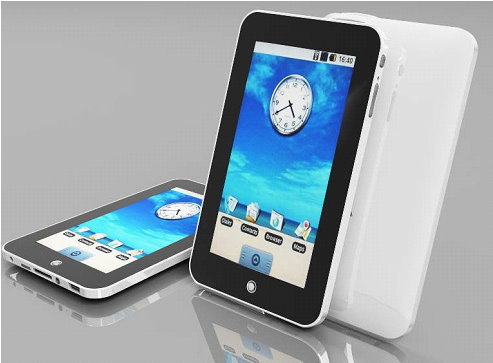
I write about finance and technology, which can range from supercomputers to iPhones and iPads, which have made inroads into enterprise computing in the last year. It's a fast-moving world with just a bit of hype, so figuring out what's real is a challenge, and spotting emerging trends is a feat that often comes from listening and deciphering themes amidst the chatter. For a change of pace I turn to photography -- I like shooting on the streets of New York, and when I am home in Wisconsin, I turn to our dogs for inspiration, as you can see on Facebook.
The author is a Forbes contributor. The opinions expressed are those of the writer.
In an excerpt from his book, “iPad in the Enterprise: Developing and Deploying Business Applications,” published in InfoWorld, Nathan Clevenger can’t quite make up his mind whether this is a revolution or a simple continuation of trends going back at least as far as Microsoft’s friendly graphical user interface, hmm, itself borrowed from Apple.
Clevenger says the iPad is so controversial that a number of the people he interviewed refused to speak on the record. That must be some die-hard IT control freaks, because the iPad seems to have taken the computing world by storm, including leading enterprises with high level security concerns, such as financial institutions. My first clue came at a planning meeting for the FUSION 2011 CEO-CIO Symposium last spring. Sitting in an office at Northwestern Mutual with CIOs from leading insurance groups and Manpower and sponsoring vendors, I was was surprised to see that at least half the participants laid iPads on the table. These were senior IT people, not tech fashionistas.
They were pretty sharp and leaders in technology adoption. At the FUSION 2011 CEO-CIO Symposium, William Brennan , CEO at Forsythe Technologies, recounted his approach to the iPad. ?After several showed up on the company network, including two owned by board members,?he told his CIO, Daniel Rodgers, to buy six for his team and figure out how to make them safe. It took just a couple of days, he said.
Clevenger provides some useful historical context, noting a Gartner report in 2005 which said the most important trend in IT was the consumer markets leadership. It’s been true for at least a decade now that office workers tended to have better technology at home than at the office, although that may have changed with the growing policy of letting workers buy their own personal computers for work.
Notebook PCs and Macs may have led the way, but the iPhone and iPad really opened up the enterprise and forced IT departments to get into the game or risk being bypassed. Clevenger cites the CIO of Hyatt on the value of the iPad and how his department embraced it, but leaves out any details of how it is being used. Unfortunate.
“The end result is that employees are able to get the data and information they need to better inform decisions. These consumerized tools enable people to better use and interpret information: they are easier to maintain, and have a higher satisfaction level with the user base than any previous generation of tools.” Nice to hear, but pretty vague and doesn’t make me want to rush out to Amazon and buy the book.
Another commentator notes that early Macs and LaserWriters were introduced in companies despite IT policies. Indeed, I remember buying a Sharp “portable” and a laser printer when I was doing marketing for a banking software company whose PCs and printers were a generation past their sell-by date.
Clevenger’s article doesn’t mention another factor here — the blurring of lines between the work day and personal time. Lucy Kellaway, in the FT yesterday, gave a name to the practice of working on holidays, “worlidays”,?and says the practice is rather nice. People who are going to work voluntarily on holidays and weekends are apt to use whatever technology they like to get the work done.
Her indicator that life has changed — the automatic out of office email was supplemented for a year or two by quick followup from a BlackBerry and now has been replaced entirely by a direct response, whether pool-side or from a cafe. I agree with her belief that work brings some balance to holidays, and also prevents the buildup of hundreds of unanswered emails when you get back to the office.
But what do I know? As a freelance writer for years, I have long since lost track of holidays and weekends, or any concept that I shouldn’t take the dogs out for a long walk in the middle of the day. It works for me.


No comments:
Post a Comment